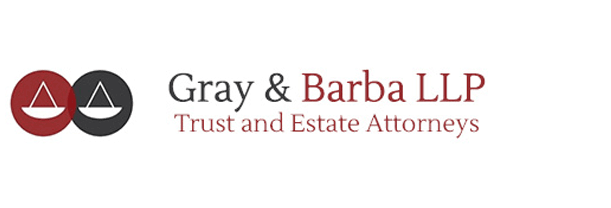Estate Administration
Estate administration refers to the process of collecting and managing a decedent’s estate, paying any debts and taxes, and distributing the remaining property to the heirs (intestate) or beneficiaries (testate) of the estate.
Fiduciary Duty
Trustees, executors and agents under powers of attorney are fiduciaries and have many responsibilities under the law. A fiduciary may be held personally liable for not managing someone else’s affairs correctly. Therefore, if you have been or will be appointed trustee, executor or agent for another person, or if someone else is the trustee executor or agent of assets held for your benefit, it is a good idea to for you to consult with an estate planning attorney to learn your duties, rights and options.
Trust Administration
There are many different types of trusts that are used in particular situations. Some examples are: Living Trusts, Revocable Trusts, Family Trusts, Irrevocable Trusts, Life Insurance Trusts, Charitable Remainder Trusts, Charitable Lead Trusts, Intentionally Defective Grantor Trusts, House Trusts, Simple Trusts, A-B Trusts, A-B-C Trusts, QTIP Trusts, Marital Trusts, Bypass Trusts, Exemption Trusts, Contingent Trusts, Disclaimer Trusts, QPRT Trusts, Special Needs Trusts and the list goes on. New types of trusts continue to be created for new situations.
A trust is essentially a list of instructions for managing assets for the benefit of some person, persons or other beneficiaries (charities, pets, etc.). Because the main way to avoid probate in California is the use of a family trust, many people discover on the death of a loved one that they are a successor trustee and now need to manage a trust. Alternatively, many discover that some other family member is now managing a trust for their benefit. There are countless issues that arise when a trustee does not properly manage a trust.
A trustee is a fiduciary and has many responsibilities under the law. A trustee may be held personally liable for not managing a trust correctly. Therefore, if you have been or will be appointed trustee, or if someone else is the trustee of assets held for your benefit it is a good idea to for you to consult with an estate planning attorney to learn your duties, rights and options.
Property Tax
Property tax is a tax on property, usually real estate, as determined by an assessor. The property tax assessor will assign a value to the house and calculate property taxes based on that assessed value. Property taxes are usually collected by cities or counties. When property transfers from one person to another, the assessor can reassess the property and raise the property tax. There are many transfers that are exempt from reassessment, a common one is a transfer between spouses. Consulting an estate planning attorney and tax professional can help you understand reassessment exclusions you may benefit from given your specific circumstances.
Capital Gains Tax
A capital gain is realized when a capital asset, such as shares of stock, a business, real estate, or a work of art, is sold or exchanged at a price higher than its basis. Basis is an asset’s purchase price, plus commissions and the cost of improvements, minus depreciation. Capital gains are generally included in taxable income, but in most cases are taxed at a lower rate. Property that passes at death can get a “step up” in basis, which can eliminate substantial capital gains tax liability. It is advisable to talk to an attorney and a tax professional when deciding whether to transfer property during life or after death.
Estate & Gift Tax
The estate tax is one part of the Unified Gift and Estate Tax system in the United States. The estate tax is a tax on the transfer of the estate of a deceased person. If an asset is left to a spouse or a federally recognized charity, the tax usually does not apply. The other part of the system, the gift tax, applies to transfers of property during a person’s life. Up to a certain amount that increases each year (presently more than $5 million) can be given by each person, before and/or upon their death, without incurring federal gift or estate taxes. Everyone should know their potential estate tax liability and if necessary plan ahead with an attorney and a tax professional to avoid unnecessary gift and/or estate taxes.
Our clients say…
One Smart Lawyer!!
“I have used Chris for three issues. Two different trusts and a probate case. She is smart and well informed. She has always been able to answer my questions in a professional and frendly manner. I know there will be other estate issues coming up for me to handle and I know that Chris is the first person I will call for help. She has been very accomodating to the needs of my elderly mother. I am sure that Chris will be able to help you and you will be happy with your choice.”
– Robin

